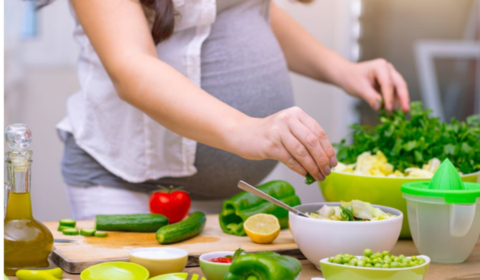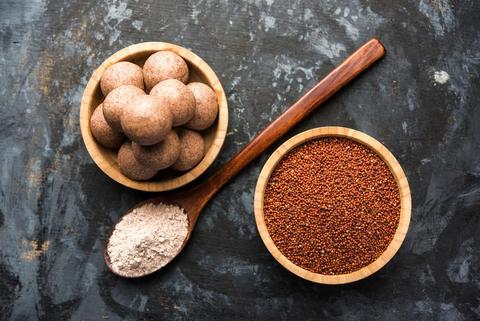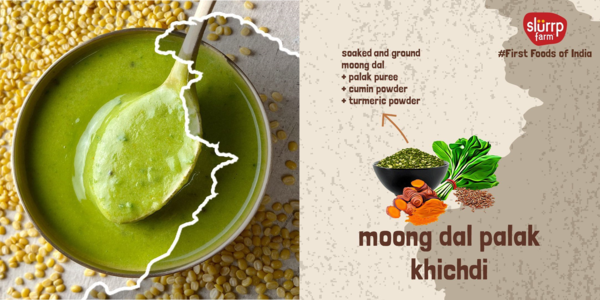By Samira Sood
We’ve been talking to parents across India about their experiences of introducing their children to the world of food (read our earlier pieces here and here). The third and final part of our series is less about recipes and more about the parents’ influence on a child’s eating habits, the anxieties a parent goes through in the early years, and how much of that has to do with food.
Is your child too thin just because their classmates are a bit heavier? If your child doesn’t like any veggies, is that a psychological problem? Should you force your kid to finish what’s on their plate or is it okay to let them leave it?
There is so much chatter around parents of little ones, from well-meaning relatives to competitive neighbors to equally confused friends to news media and advertising, that sifting through it all and deciding what’s actually best for your child can be a hellish task.
Who do you trust?
The thing that makes it all especially overwhelming is the knowledge that the path you set your child on has such an impact on their later life, their health, their relationship with food and different cultures. As a parent, your role in your child’s lifelong diet is invaluable. And, of course, you’ve never done this before. So who do you go to for advice? Do you trust your doctor, your mother, Google, your Facebook moms’ group, or your own instinct?
For Sonata Mary Maiong, it was her friends whom she really relied on. The single mother of twin boys, now seven years old, made the decision to have children via surrogacy. “I didn’t go through pregnancy, so I didn’t know what they were receiving in the womb – I assumed she was getting proper care from doctors, but I wasn’t sure. So food was a big thing for me when they were born. They were born premature, 1 and 1.5 kilos, roughly. So tiny, like little rats!” Added to that, she was working in Mumbai at the time, away from her parents in Shillong, so there was no in-person advice from them, “or even cultural markers in that sense”.
She recalls that she figured out everything either through the internet or via friends with kids. “I didn’t really call my mother a lot to ask her questions. There was one friend who had recently adopted a child and she’s into this whole organic living and eating, she was vegan also – she really helped me with the food part. She would send me red rice and red banana powder, which was great.”
On the other hand, Rituparna Roy, a Bengali mother of a three-year-old boy who lives in Mumbai, found her mother and mother-in-law to be huge sources of support. She also found it useful to discard random ‘old wives’ tales’ and listen to her doctor and her own gut.
“I would not call us an untraditional family, but through my pregnancy, it was all about eating normal balanced food, no pregnancy foods per se. And my husband and I just went by the rulebook, we stayed in touch with the docs, who just said there is no need to eat anything extraordinary, but no need to be so rigid either. There is a belief that papaya is not good for pregnant women, for example, but my doctor even told me it’s fine in small quantities. And of course, I wasn’t going to sit and eat a whole papaya, but a small slice or a couple of cubes was no big deal.”
She followed the same principle after her son, Neil, was born, as well. She explains that in Maharashtra, first foods are focused on grains and dals, while for her family in Bengal, the main focus was animal protein. “Through my pregnancy, I ate fish almost every day. Post delivery, when I came back home, my in-laws suggested that I shouldn’t eat fish immediately, but my mom was here for three months so she would cook it for me and I was fine.”
Pregnancy Diet Chart For The First Month
Traditional and regional versus doing your own thing
Among all the parents we spoke to, the debate between “what my mother fed me” and “what I felt was right” came up a fair bit.
For Roy, it was a bit of both. “I trusted my mother completely – not that I would only do what my mother did, but I found some logic in it. If I’m lactating properly after eating a balanced meal, if my docs are saying there is no need to change/fix what’s not broken, and if there is something I’m used to eating and I know it suits me, then I see no reason to change that. Everyone’s body, system, and diet are different.”
She adds that today there is so much exposure through the media, so much information thrown at you about what’s good and bad for you and your baby, that “it’s all a bit much, and can really induce anxiety. My husband and I just decided there was no need to be alarmist and just follow logic.”
Maiong’s experience was a bit different, given that she didn’t rely on her mother at all. She didn’t feel the need to give her sons traditional family food per se – “They ate what I thought was good for them. For example, we didn’t eat millets and ragi in the Northeast, I’d never eaten ragi in my life, but I read up on it, and now there’s this awareness of the health benefits of eating millets, so I gave it to my kids even though it was not what I was weaned on. Everything was organic, yes, everything was cooked by me – that’s about it.”
In her case, it was also a question of location and weather. “My parents would say dahi is a cold food, don’t give too much. But the kids were in Mumbai, which has very different weather from Shillong, so I gave them lots of dahi. Also, the Northeast doesn’t have too much variety in kids’ food, so weaning kids would eat the same food as the adults, but in a softer form – rice, meat, and veggies would just be stewed and mashed or in tiny pieces. So I really didn’t bother with tradition on that front.”
And over in Noida, 70-year-old Chandra Razdan Bhattacharyya recalls how her own multicultural upbringing was passed on to her son. Kashmiri by birth, she never lived there but grew up eating Kashmiri food. “But because of my father’s job, I grew up in Bengal and Bihar, where we were surrounded by people from all over India. Plus my mother used to be a fine cook, so my sisters and I were exposed to different cuisines early on, and grew up with a very open palate. And all three of us married into non-Kashmiri families – and turned out to be decent cooks!” For her son, she didn’t depend on traditional recipes per se but was particular about the health aspect. “No soft drinks, no cake, basically that he should be healthy. Whatever is tasty and well-made, we enjoy it, and we’re not fussed whether it’s traditional or not.”
How do you deal with a picky eater?
One of the biggest worries for all parents, is what if their child simply doesn’t eat? Is it just a small appetite or is there a bigger issue to worry about?
Prateek Raja is a Kolkata-based father of two boys, aged 12 and nine. He and his wife, Priyanka, both come from families that revolve around food. So when his younger son started to show signs of fussiness, it did cause concern. He says, “Our older son was and is a straightforward, experimental eater, and he travelled with us everywhere. We were also reading a lot about what we should be feeding him. ideas of texture and touch were important. We relied a lot on packaged kids’ food for travel as backup, but never ended up using it because he would rather eat actual food, what we were eating. Our younger son is a picky eater, and has a smaller appetite and build. But we realised over time that maybe he’s just more specific and less experimental, and that’s okay.”
4 Wholesome Travel Foods for Babies And Fussy Traveller Onboard
Razdan Bhattacharyya had an even tougher time with Umang. “Maybe he had some allergy, he could not digest food properly – in fact, he used to be fed sitting on the pot because it would come out so quickly! I tried suji ka dalia instead of wheat, I tried very thin khichdi, dal ka pani, mashed banana – it was a lot of trial and error. And this difficulty continued until he started going to nursery school, then he slowly grew out of it. And he started to enjoy food, which was great. Even simple things like an aloo sabzi or a dal at home. He was the only child amongst all the cousins who liked karela!”
Ultimately, parents and their food choices have a lasting impact on children – one way or another. “I gave my sons no salt or sugar for two years, lots of veggies, and they had no health issues and still don’t,” says Maiong. “But at the age of two, one of them decided he didn’t want anything healthy anymore!”
Unlike Roy, whose son now eats pretty much what his parents eat, Maiong’s sons had separate food, made for them, and now, “even though they’re seven, they don’t eat what I eat, I always have to make something different for them, especially the picky one.” She did worry about it, but soon devised so many healthy meals for him, and believes it’s a matter of time – he now eats broccoli and fish, which he didn’t earlier – although they have to be cooked in the specific way he likes.
“We moved back to Shillong in 2015, and there people are mainly rice eaters, but he doesn’t touch rice. “My mother does sometimes say if I had given my kids the food I was eating, they would be less fussy now, but I just never thought it was nutritious enough. I do sometimes think I made mistakes, maybe I should have followed tradition? I don’t know, it’s not affected their growth in any way, but I’m always cooking two meals so that’s tough.”
She recalls that as a first-time mother, and of preemies, she was extremely anxious, and even took her son to a clinical psychologist to work on his relationship with food. It took her a long time to relax about it. A turning point, in a way, was when a friend came with her family on a vacation to Shillong. “The husband was going mad trying to feed their son and my friend was chilling, drinking her wine. I asked her: ‘Aren’t you worried?’ She said, ‘Look, what’s the worst that will happen? He’ll lose a kilo or two during a vacation? We’ll go back and he’ll regain it. Why should I ruin my holiday because he’s not hungry?’”




